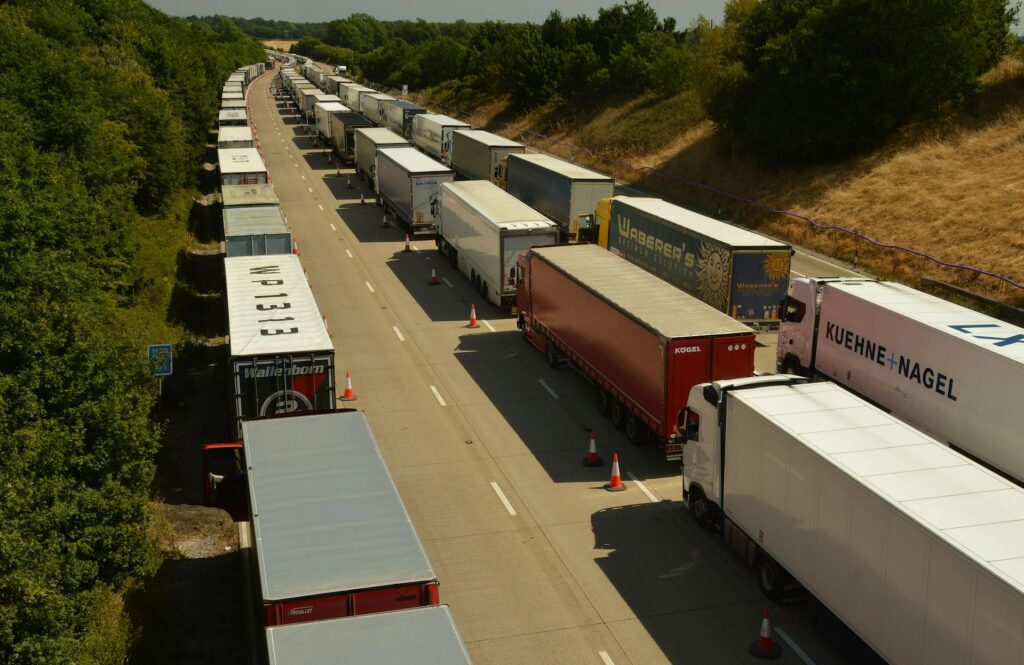
In today’s wave of globalization, international trade is booming, and international cargo transportation is like the artery of economic development, continuously transporting a wide variety of goods. And within this complex and variable transportation chain, Cargo Insurance (cargo transportation insurance) undoubtedly plays a crucial and protective role.
I. What Exactly is Cargo Insurance?
Cargo Insurance, in simple terms, is an insurance mechanism that provides all-round protection for goods throughout the transportation process. From the moment goods leave the warehouse, whether it’s a short-distance local transfer or a long and arduous transnational journey, until they finally reach the destination warehouse safely, it accompanies every step of this long and challenging journey. Just imagine, a batch of high-tech electronic products is being shipped overseas by sea.
The huge container ship sails on the vast ocean and may encounter the onslaught of strong winds and waves at any time. Or precious artworks are being transported by air, and even a slight jolt may cause irreversible damage. Even when choosing land transportation, as the truck speeds along the highway, it is inevitably subject to unexpected traffic accidents, road bumps, and may even face the risk of theft in areas with complex security situations. And Cargo Insurance is like a solid armor for the goods.
As long as it falls within the scope stipulated in the insurance contract, whether it is the damage caused by natural disasters, such as heavy rain flooding the transportation vehicle and submerging the goods, or the destruction caused by accidental accidents, like a ship running aground or a vehicle collision, and even the malicious theft and looting by humans, once such misfortunes occur, the insurance company will provide timely and reasonable economic compensation to the insured according to the established terms, minimizing the economic losses of the cargo owners and giving an extra peace of mind to the cargo transportation.
II. The Necessity of Purchasing Cargo Insurance in International Cargo Transportation
- Coping with Complex and Changeable Transportation Risks
The routes of international cargo transportation often span thousands of miles and involve numerous links, and the transportation environment is incredibly complex. During sea transportation, the marine climate is unpredictable. A sudden hurricane may make the ship shake violently, causing the goods in the containers to squeeze and collide with each other. Precision instruments may malfunction instantly, and fragile items may shatter into pieces. When it comes to land transportation, it has to pass through different terrains and areas with varying road conditions. Some remote areas have poor security, and the goods are at risk of being stolen or robbed at any time. Without Cargo Insurance, cargo owners would have to bear these huge losses alone, and the operation of the enterprise is likely to fall into a difficult situation. With it, it’s like installing a “shock absorber” and a “protective net” for the goods, providing a solid economic support when risks hit. - Meeting the Requirements of Trade Contracts
In the arena of international trade, the contract is the “script” for the cooperation between the two parties. Many trade contracts clearly stipulate that purchasing sufficient and suitable Cargo Insurance is an obligatory clause that the seller or the buyer must fulfill. For example, when the trade term CIF (Cost, Insurance and Freight) is selected, the seller is responsible for purchasing insurance and providing the buyer with valid insurance documents. This is not only a crucial measure to ensure the physical safety of the goods but also a “golden key” to ensure the smooth flow of the trade process and avoid potential disputes, maintaining the business reputation of both parties and laying the foundation for long-term cooperation. - Ensuring the Stability of the Enterprise’s Cash Flow
For many enterprises, especially small and medium-sized foreign trade enterprises with relatively weak risk resistance capabilities, a batch of goods often represents a large amount of capital investment. Once an accident occurs during transportation and there is no timely compensation from Cargo Insurance, the enterprise may suddenly fall into the abyss of a broken cash flow chain, facing a series of fatal crises such as production stagnation and order default. On the contrary, the insurance compensation can quickly fill the capital gap, just like a “timely rain,” helping the enterprise stand firm in the face of adversity and continue to be active in the market competition.
III. How to Purchase Cargo Insurance
- Determine Insurance Needs
The first step for cargo owners to start the insurance purchase journey is to accurately understand the unique attributes of the goods. For fragile items such as glass handicrafts and precision electronic devices, slight collisions and vibrations during transportation may cause fatal damage, so it is necessary to focus on insuring against collision and vibration-related risks. Perishable fresh agricultural products, pharmaceuticals, etc., have a short shelf life and strict requirements for transportation conditions, so protection against the risk of deterioration is essential. At the same time, an insurance plan also needs to be “tailored” according to the transportation route. If it passes through areas with high pirate activities, poor road conditions, or unstable security situations, the insurance amount should be correspondingly increased, and the scope of protection should be expanded. After comprehensive consideration, determine the suitable insurance types and amounts. - Select an Insurance Company
This step is of vital importance. One should give priority to insurance companies with excellent reputation, strong financial strength, and rich international claims settlement experience. You can collect information through multiple channels, check professional industry ratings, refer to the word-of-mouth evaluations of past customers, or consult peers and seek recommendations. Large multinational insurance companies, with their extensive global claims settlement networks, are often more efficient and professional in handling international cargo transportation claims, and can provide solutions to problems for cargo owners at critical moments and become a solid backing. - Negotiate Insurance Clauses
After selecting an insurance company, in-depth and meticulous communication with the insurance agent is a key step. It is necessary to clearly define the start and end time of the insurance liability. Although the common “warehouse to warehouse” clause is well-known, the details still need to be clarified one by one. Carefully understand the setting rules of the deductible, and carefully weigh the pros and cons of different plans, such as a low deductible with a high premium or a high deductible with a low premium. At the same time, have a clear understanding of the claims settlement process, including the time limit for notifying the insurance company after an accident occurs and the various types of documents required, to ensure that the due compensation can be obtained smoothly and efficiently when an accident occurs. - Sign the Insurance Contract and Pay the Premium
After carefully reviewing the insurance contract to confirm that all terms are consistent with the previous negotiations and there are no hidden traps, you can officially sign the contract and pay the premium on time according to the agreed method. The calculation of the premium usually takes into account multiple factors, such as the value of the goods, the risk coefficient of the transportation method, and the selected insurance types. After completing this series of steps, the goods are like having a loyal guard and officially start a worry-free transportation journey with Cargo Insurance escorting them all the way.
Cargo Insurance is like a solid lighthouse on the journey of international cargo transportation, illuminating the way for the goods and laying a solid foundation for the prosperity of global trade. Only by having an in-depth understanding of it and using it skillfully can cargo owners ride the waves in the ever-changing international logistics market, safely transport the goods to every commercial corner of the world, and continue to write the glorious chapter of international trade.





